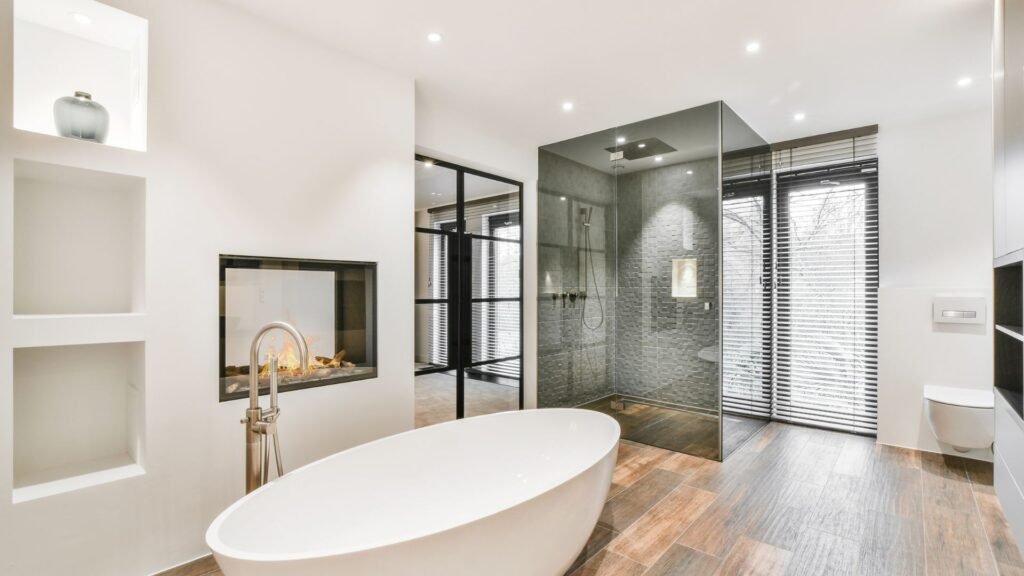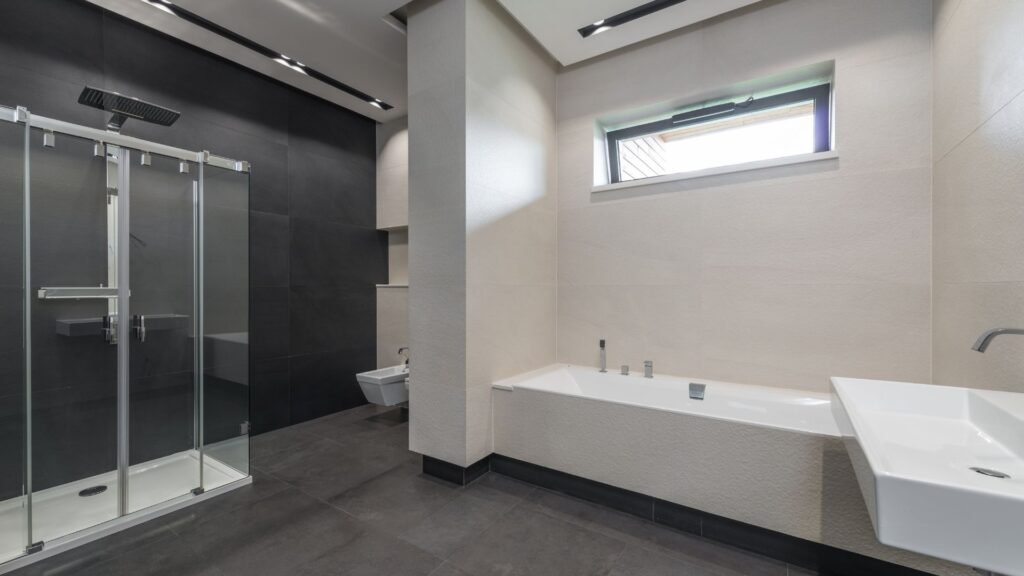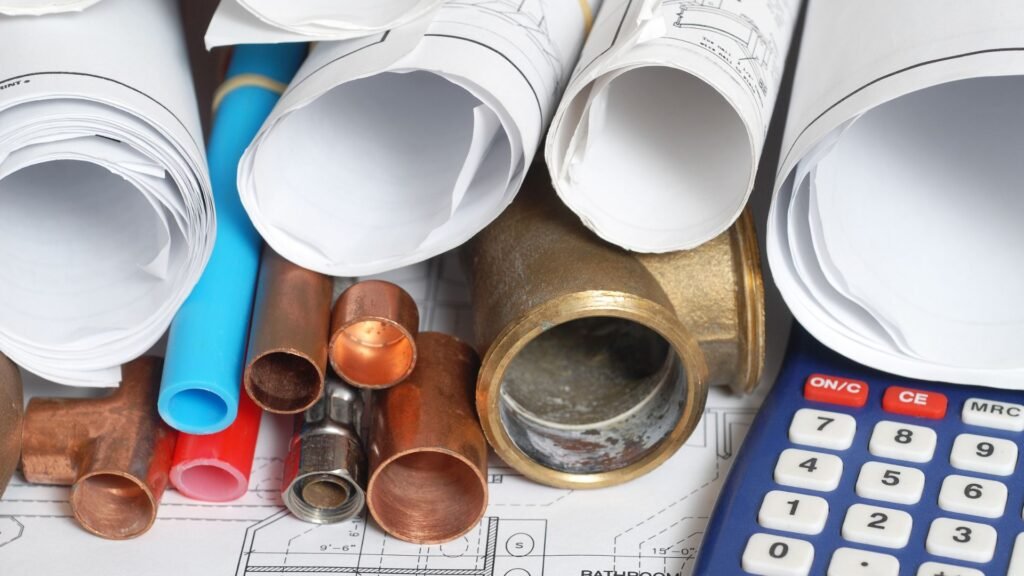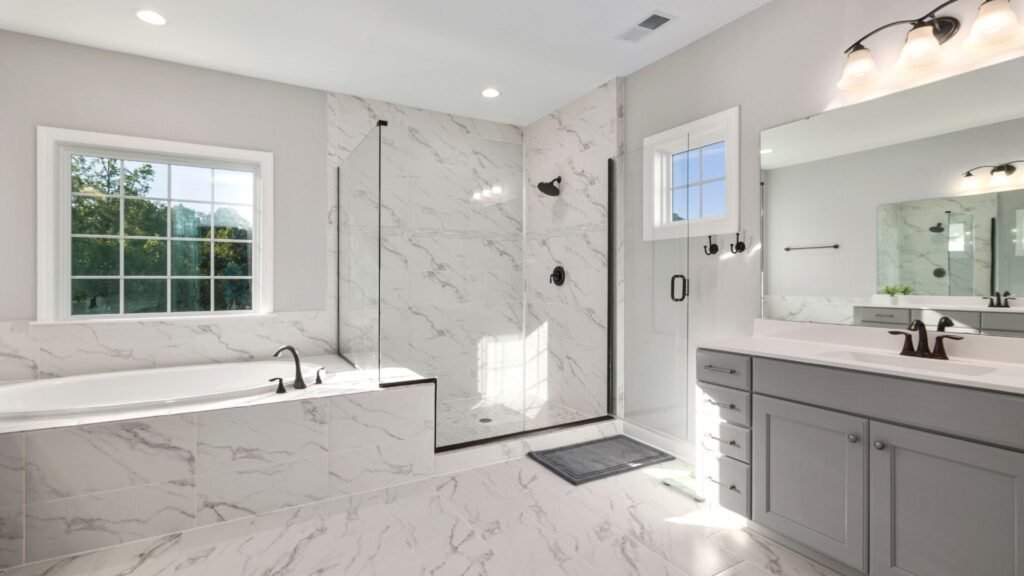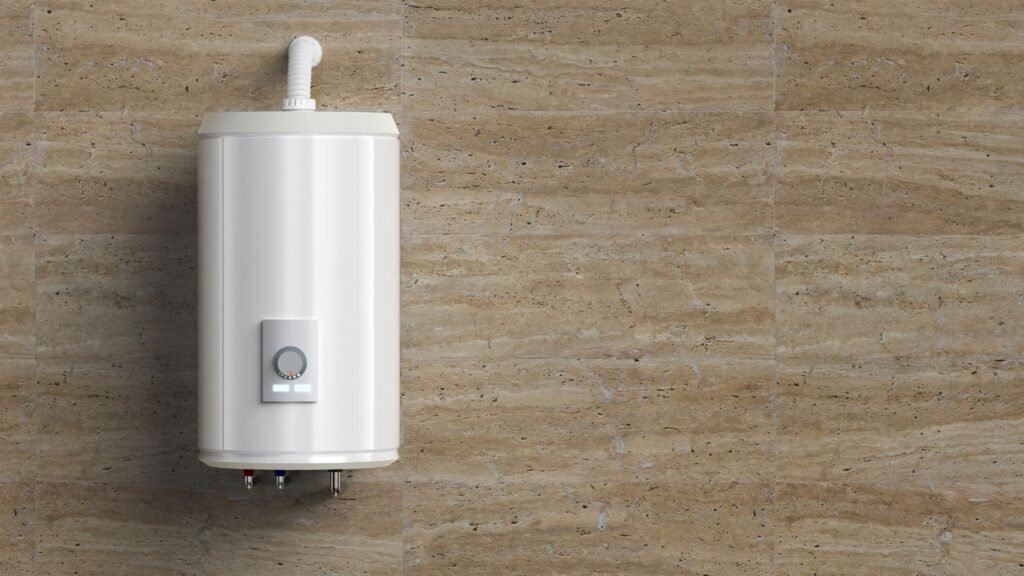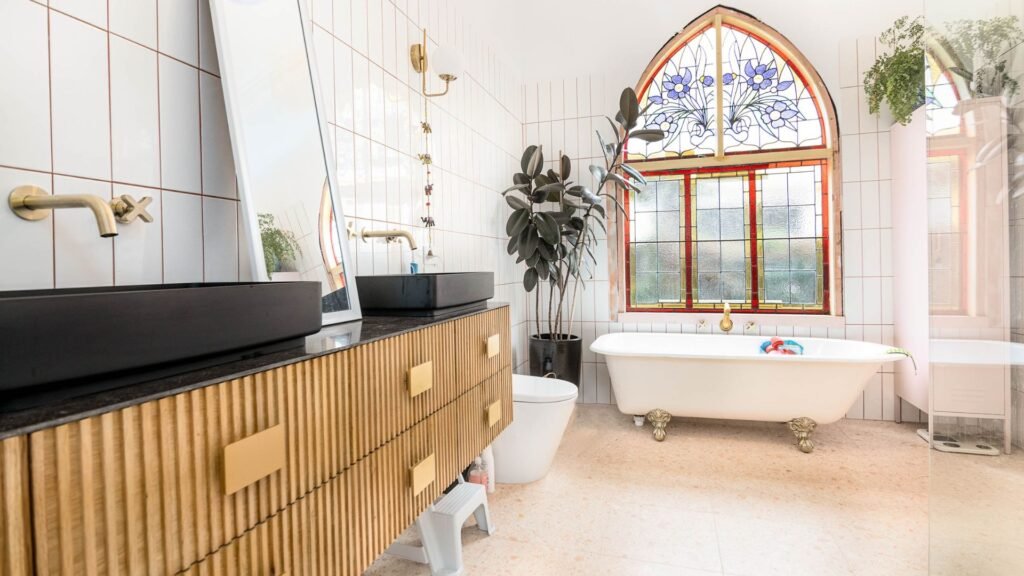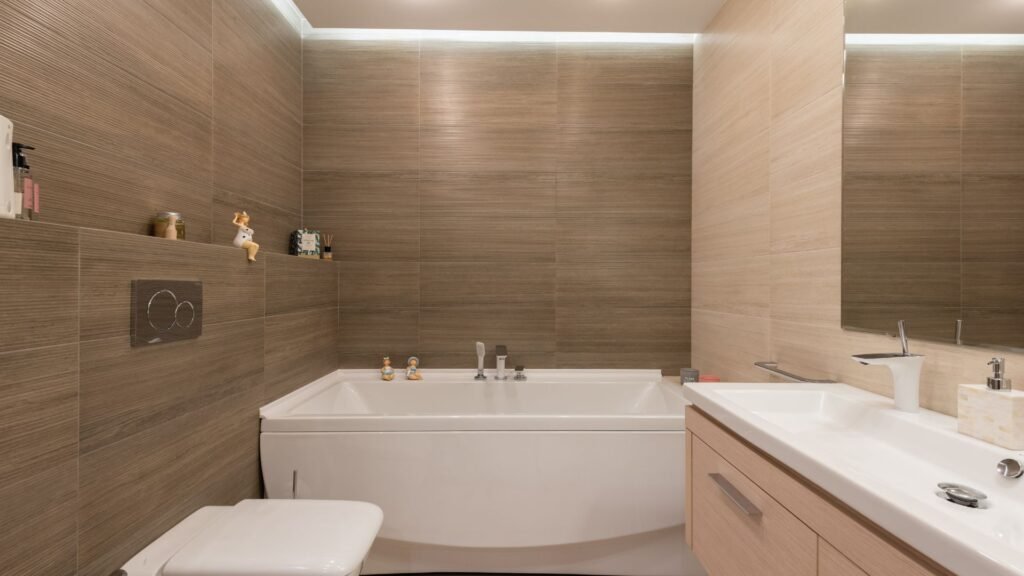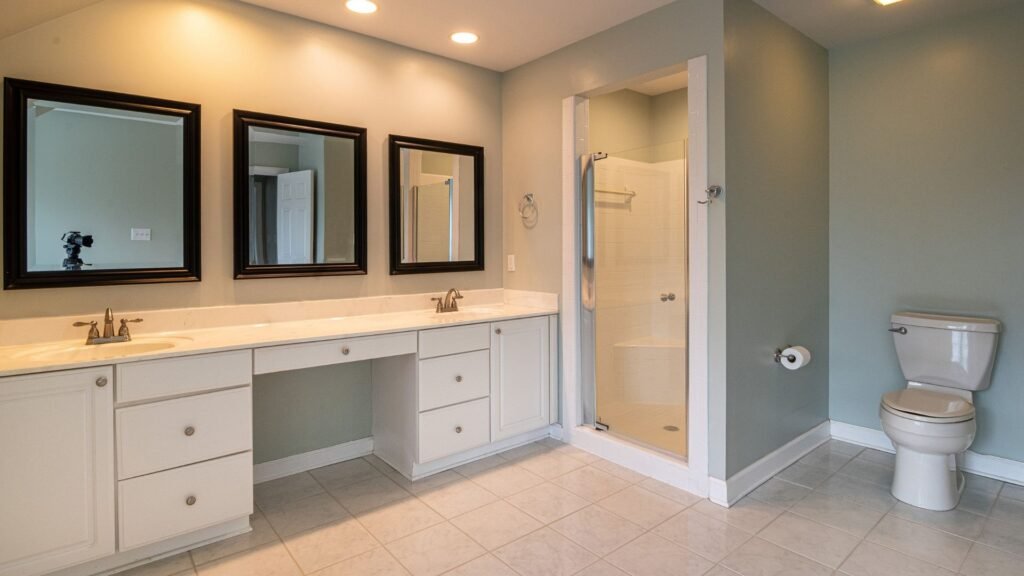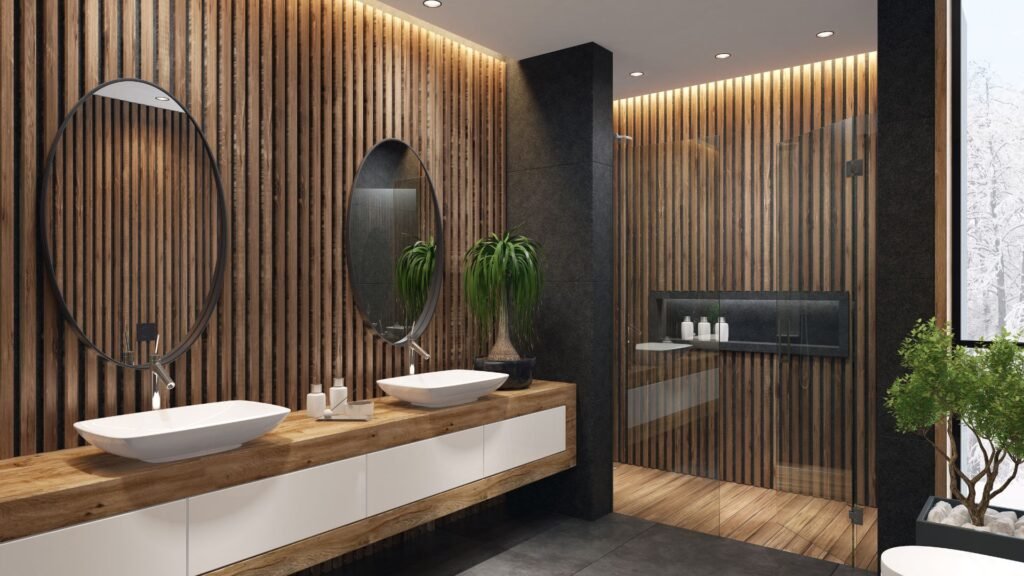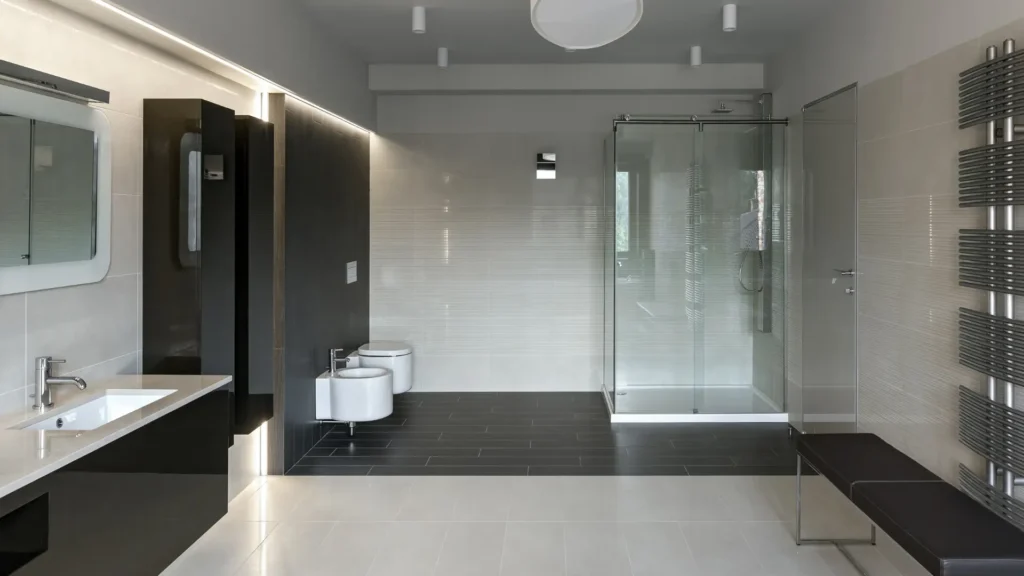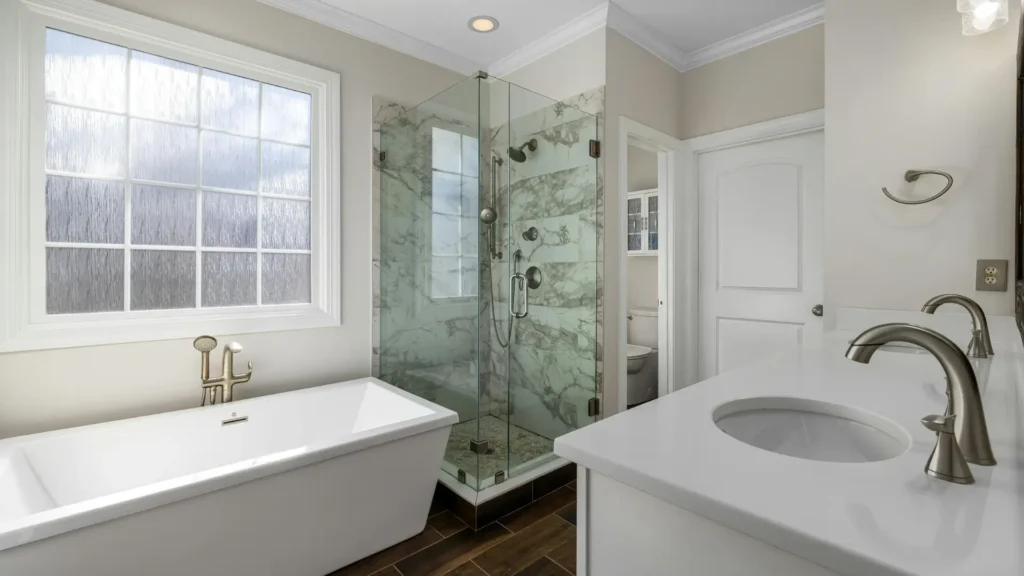Welcome to a guide that tackles one of the most puzzling and unpleasant problems many New Zealanders face, why your bathroom smells when it rains. If you’ve noticed a strange, musty, or downright foul odor coming from your bathroom during wet weather, you’re not alone. This issue affects homes across NZ, from modern builds to older houses, and often stems from hidden plumbing quirks or climate-related drainage issues. In this post, you’ll learn exactly what causes these smells, why they’re so common in New Zealand, how to identify the source, and most importantly, how to get rid of them for good.
Bathroom smells during rain in NZ are often caused by dry drain traps, blocked or damaged vent pipes, or poor plumbing seals that let sewer gases escape. Heavy rain can increase pressure in the drainage system, pushing bad odors back into your bathroom. Regular maintenance and proper ventilation can help fix and prevent the issue.
Table of Contents
What Causes Bathroom Smells When It Rains In NZ?
If you’ve ever noticed an unpleasant smell coming from your bathroom during or after rainfall, you’re not alone. Many households across New Zealand deal with this issue, especially in areas with frequent wet weather and aging plumbing systems. These smells usually aren’t random, they’re a direct result of how rain affects your home’s plumbing and drainage setup. Understanding the causes can help you identify the problem early and fix it before it gets worse.
Rain And Plumbing: What’s The Link?
When it rains, especially during heavy downpours, your home’s drainage and sewer systems come under extra pressure. This can lead to a range of plumbing issues that you might not notice when the weather is dry.
- Here’s how it works: rainwater enters the stormwater system and, in some areas of New Zealand, these systems are connected or run close to the sewer line. When there’s too much water in the system, it creates pressure that can force gases and smells back up through your bathroom drains.
At the same time, the air pressure outside drops slightly, which disrupts the normal airflow in your plumbing vents. Those vents are meant to release sewer gases safely outside, but during a storm, they may not work properly. If the pressure gets imbalanced, the gases look for another way out, often through the toilet, shower drain, or sink.
It’s a small change, but it has a big impact when everything in your plumbing system isn’t working perfectly.
Common Sources Of Smell
There are a few usual suspects when it comes to bathroom smells during rainy weather in NZ. Identifying them is the first step to solving the issue for good.
Dry P-Traps
P-traps are the curved pipes under your sinks, showers, and floor drains. They hold a small amount of water to block sewer gases from rising into your bathroom. But if the trap dries out, maybe because that drain isn’t used often, the barrier disappears. As a result, the smell comes through clearly, especially when added rain pressure forces it up.
Blocked Or Broken Vent Pipes
Vent pipes allow fresh air to enter your plumbing and sewer gases to escape above your roofline. If the pipe is blocked by debris or birds’ nests (a common issue in NZ), or if it’s damaged, the gases can’t exit properly. Instead, they’re pushed into your bathroom through the easiest available opening.
Cracked Seals Or Faulty Toilet Flanges
Over time, the rubber seals under your toilet or between fixtures can wear out or shift out of place. When it rains, and pressure builds in the sewer system, those weak points become escape routes for smells. A bad flange under the toilet is one of the most overlooked yet common causes.
Overloaded Stormwater Systems
In many older NZ homes, stormwater and sewer systems are either poorly separated or outdated. When stormwater systems overflow, sewer gases can be forced back through bathroom pipes. If you live in an area with frequent heavy rain and an old drainage layout, this could be the culprit.
Poor Waterproofing In Older NZ Homes
Older homes, especially those built before stricter building codes, often have poor sealing around bathrooms. Rainwater may seep into walls or under floors and interact with waste pipes. The result: a musty, sewage-like smell that worsens during wet weather.
These causes are more than just minor annoyances. Left unchecked, they can point to deeper issues with your plumbing or drainage. The good news? Once you know what’s behind the smell, fixing it becomes much easier.
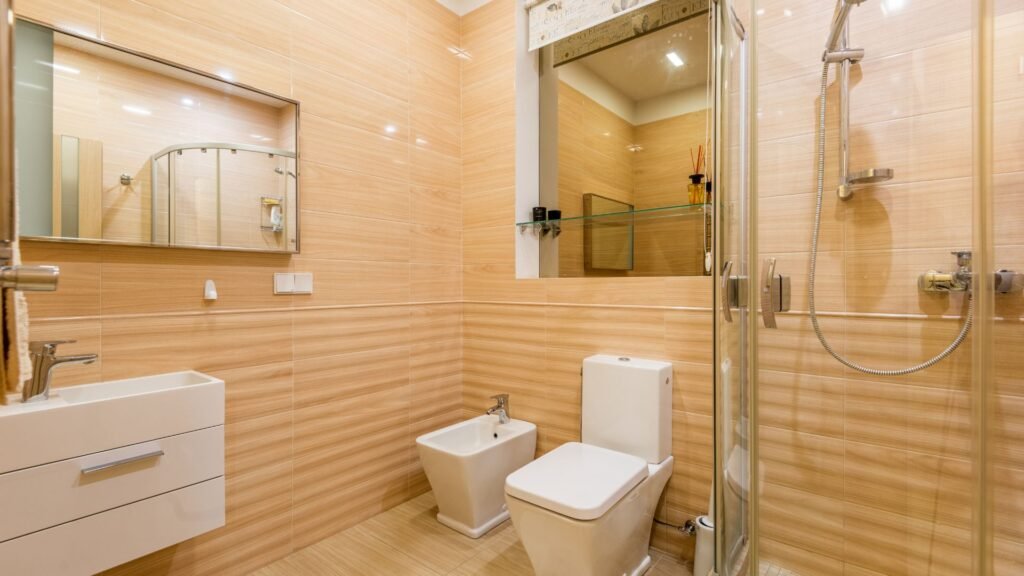
Why It Happens More Often In New Zealand Homes
When it comes to strange bathroom smells during rainy weather, many homeowners in New Zealand find it happens more often than expected. There’s a good reason for that. The country’s climate and housing infrastructure create the perfect conditions for this issue to appear, and persist, if not addressed. Let’s break down why bathroom odors are more common in NZ homes, especially when it rains.
Climate Factors
Frequent Rain And High Humidity
New Zealand experiences frequent rainfall throughout the year, especially in regions like Auckland, Wellington, and the West Coast. This constant wet weather increases the pressure on stormwater and sewage systems. When these systems become overwhelmed, gases from the sewer can be pushed back into your home through your drains. On top of that, high humidity slows evaporation, which can cause water seals in your plumbing to dry out faster than usual. This leads to dry traps, one of the most common causes of bathroom odors during rain.
Groundwater Saturation And Older Drainage Systems
Continuous rain saturates the ground, particularly in winter months. When the soil is soaked, water has fewer places to go. As a result, stormwater can back up into underground sewer pipes, especially in older systems that aren’t built to modern standards. In areas with poor drainage, pressure changes in the plumbing can force sewer gases through cracks, loose seals, or poorly vented pipes. This is especially noticeable during or after heavy rain.
Housing Infrastructure
Aging Plumbing In Older Suburbs
Many New Zealand suburbs, especially older areas, have plumbing systems that were installed decades ago. These systems may not have proper venting or modern water-trap designs. Over time, seals wear out, vent pipes crack, and water traps become inefficient. When this happens, it’s easier for gases from the sewer to travel back into your bathroom during periods of heavy rainfall.
Combined Stormwater/Sewer Systems In Some Areas
In some parts of New Zealand, particularly in older cities, stormwater and sewage run through the same pipes. During heavy rain, these combined systems can become overloaded. When this happens, gases are more likely to push back through the plumbing and into homes. This design flaw makes bad smells much more common after rain, especially if your home is located downhill or at the end of a system line.
DIY Renovations That Don’t Meet Building Code
Many Kiwi homeowners take on bathroom or plumbing renovations themselves. While this can save money, it often leads to shortcuts, like missing vent pipes or improperly sealed traps, that don’t meet the NZ Building Code. If the renovation wasn’t inspected or signed off by a licensed plumber, there’s a higher chance that plumbing problems will arise. This includes poor drainage, broken water seals, and bathroom odors after it rains. These local factors, weather, aging infrastructure, and DIY plumbing, combine to make rainy-day bathroom smells a common issue across New Zealand. Understanding what’s going on behind your walls is the first step toward fixing the problem and keeping your home fresh year-round.
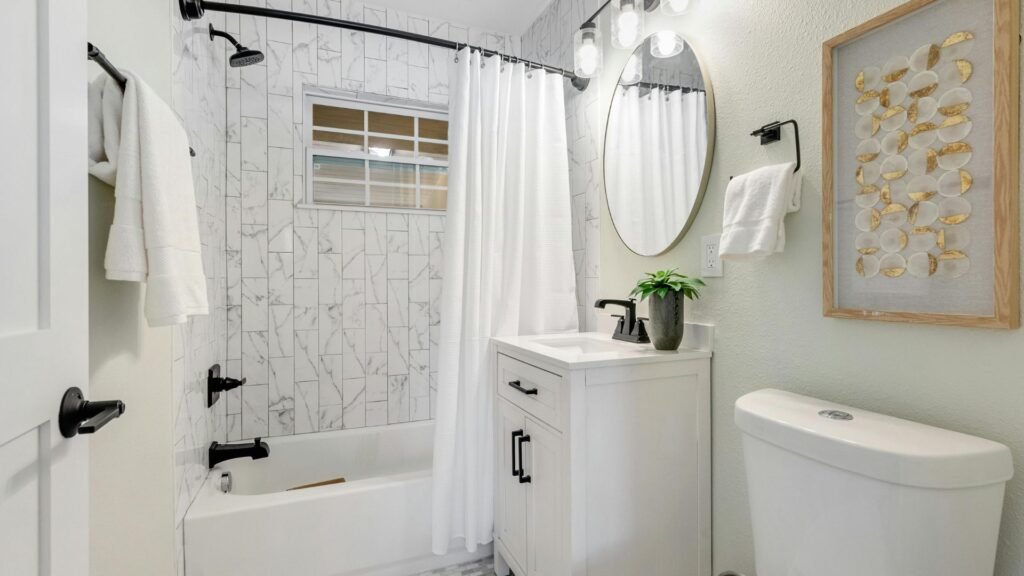
How To Identify The Exact Source Of The Smell
When your bathroom starts to smell during or after rain, it’s more than just a nuisance, it’s a sign something’s wrong in your plumbing or drainage system. Figuring out exactly where the smell is coming from is the first step to fixing it properly. You don’t need to be a plumber to start this process. With a few simple checks, you can narrow down the likely source and decide if it’s something you can handle or if it’s time to call in the pros.
DIY Checklist
Check If Traps Are Dry (Listen For Gurgling Sounds)
Start with the easiest and most common cause, dry traps. Every drain in your home should have a water trap (also known as a P-trap or S-trap). This U-shaped pipe holds water to block sewer gases from coming back up. But if a drain hasn’t been used in a while, the water evaporates. You’ll often hear a gurgling sound when nearby water drains. That’s a sign air is rushing past a dry trap. Run water in all sinks, showers, and floor drains to refill the traps and see if the smell goes away.
Sniff Around Toilet Base, Drains, And Sink Overflow Holes
Odours don’t always come from the obvious spot. Get close and sniff around the base of the toilet, if the wax ring or silicone seal is broken, gases can escape from underneath. Also check your shower and sink drains, especially the overflow hole inside your basin. Bacteria can build up in these places and cause smells that get worse when the air is heavy and damp after rain.
Inspect Outdoor Vents And Gutters
Your home’s vent pipes play a key role in releasing sewer gases outside. If they’re blocked by leaves, debris, or even bird nests, the pressure can force odours back into the bathroom. Go outside and check your roof vents or vent stacks. If you’re comfortable on a ladder, look for blockages in the gutters too, clogged gutters can overflow and affect how water drains away from the house, leading to plumbing backups inside.
When To Call A Professional
Persistent Smell Despite Cleaning
If you’ve cleaned the drains, flushed all traps, and aired out the bathroom, but the smell keeps coming back, it’s time to involve a plumber. You could be dealing with a cracked pipe, broken vent, or hidden leak that you can’t see without professional tools.
Signs Of Leaking Or Slow Drainage
Watch for signs like water pooling at the base of the toilet, bubbling water in the sink when you flush, or water taking too long to drain. These symptoms usually point to a blockage or pressure issue in the system, which might require CCTV inspection or pipe replacement.
Bad Odour Comes From Multiple Fixtures
If more than one drain or toilet is releasing foul smells at the same time, the issue is likely deeper in your plumbing or even connected to the main sewer line. This is a strong indicator that the problem goes beyond one fixture and needs expert diagnosis.
By going through these steps, you can figure out whether you’re facing a minor maintenance task or a major plumbing problem. And the sooner you act, the easier and cheaper it usually is to fix. Don’t wait for the smell to get worse, track it down early and take control.
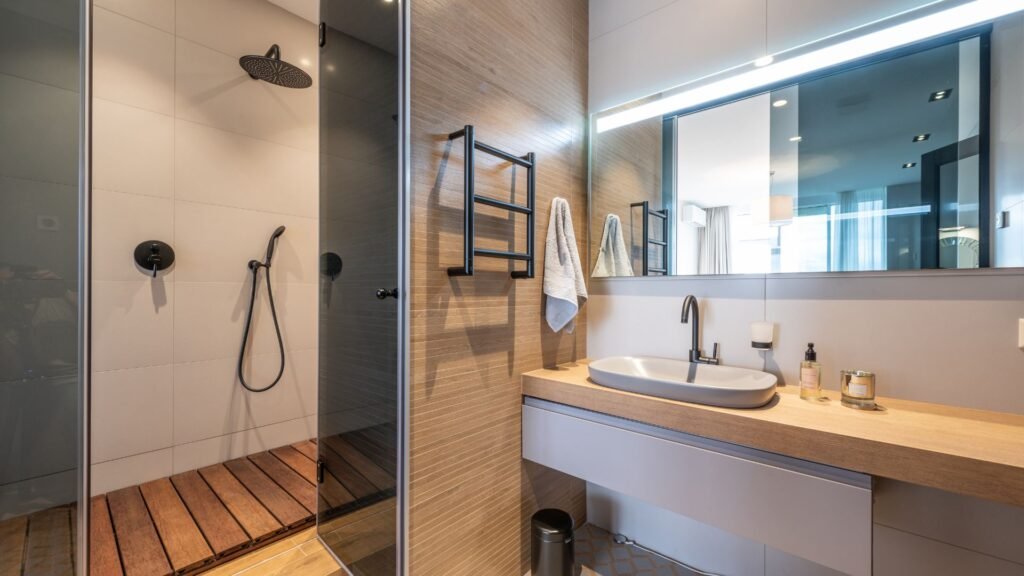
How To Fix Bathroom Smells During Rain
Dealing with a bad smell in your bathroom when it rains isn’t just annoying, it’s a sign that something’s not right in your plumbing system. Whether it’s a faint musty scent or a full-blown sewage odor, the issue often ties back to drainage, venting, or moisture problems. The good news is, most of these can be fixed with a mix of simple maintenance and a few targeted upgrades. Here’s how you can get your bathroom smelling fresh again, no matter how wet it gets outside.
Simple Fixes You Can Try First
Sometimes the problem is easier to fix than you might think. Before calling a plumber, try these straightforward steps:
Pour Water Into All Drains Regularly
If you have floor drains, guest showers, or other plumbing fixtures that don’t get used often, the water in the P-traps can evaporate. This allows sewer gases to rise through the pipes and into your bathroom. Pouring a few cups of water down each drain once a week keeps the water barrier intact and blocks the smell.
Use Enzyme-Based Drain Cleaners (Not Harsh Chemicals)
Instead of pouring strong chemical cleaners into your pipes, opt for enzyme-based solutions. These break down organic waste slowly and safely without damaging your plumbing. They also help remove buildup that can trap smells and bacteria. Look for products labeled safe for septic systems or eco-friendly formulas that are commonly available in New Zealand.
Seal Around Toilet Base With Silicone If Gaps Are Visible
If your toilet shifts slightly or has visible gaps around its base, sewer gas may be leaking through the broken seal. Use a bathroom-grade silicone sealant to create a tight, waterproof seal between the toilet and the floor. Make sure the area is clean and dry before applying it. If the smell continues, the wax ring underneath may need replacing, which is best done by a plumber.
Preventative Upgrades
If the smell comes back after rain no matter what you do, it may be time for more permanent fixes. These upgrades can help prevent future problems and are especially useful in older New Zealand homes where plumbing systems may be outdated.
Install One-Way Valve To Prevent Sewer Gases
A one-way valve (also called a check valve) allows waste and water to flow out but stops sewer gases from flowing back in. It’s a smart addition to your system, especially if your home is in a flood-prone area or has combined stormwater and sewer drainage. This device is typically installed by a professional and can be placed in key parts of your plumbing system to act as a backup defense.
Upgrade Or Repair Faulty Vent Pipes
Vent pipes let air into your plumbing system and help keep water seals in place. If these vents are blocked, cracked, or poorly installed, you’ll end up with pressure issues that force smells back into your home. A plumber can inspect the vents using a camera or smoke test and suggest repairs or replacements. In some cases, adding an air admittance valve (AAV) may help if adding a new pipe isn’t practical.
Improve Bathroom Waterproofing And Ventilation
Waterproofing isn’t just for showers, it helps protect floors, walls, and substructures from hidden leaks and mold. If your bathroom lacks proper sealing or has old grout and caulking, moisture may seep into places where bacteria thrive. Upgrading to better waterproofing materials and adding a proper exhaust fan will reduce humidity and odors long-term. Be sure to run the fan for at least 20 minutes after each shower or during rainy days.
Tackling bathroom smells during rain doesn’t have to be overwhelming. Start with small, manageable fixes and see if the odor improves. If it doesn’t, move on to these more robust solutions. Either way, keeping your drains clear, your seals tight, and your ventilation system running smoothly will go a long way toward keeping your bathroom fresh, even when it’s pouring outside.
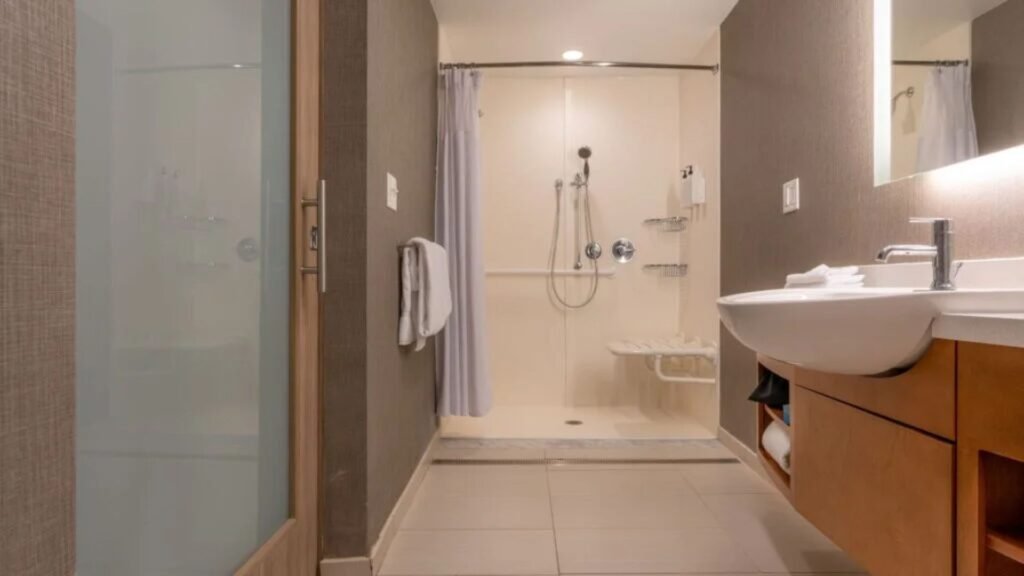
Should You Be Worried About Health Risks?
It’s completely understandable to feel concerned when your bathroom starts to smell, especially during or after heavy rain. The odors often point to the presence of sewer gas, which isn’t just unpleasant, it can affect your health if ignored. Let’s break it down in simple terms so you know exactly what you’re dealing with.
What Is Sewer Gas?
Sewer gas is a mixture of gases produced by decomposing human waste. It commonly includes hydrogen sulfide, methane, ammonia, and carbon dioxide. These gases are usually trapped safely in your plumbing system and blocked by water in traps (like the U-shaped pipe under your sink or shower). But if something goes wrong, like a dry trap or broken seal, those gases can escape into your bathroom.
The most noticeable component of sewer gas is hydrogen sulfide, which smells like rotten eggs. Methane is another concern, not because of smell, but because it’s flammable in large amounts. The good news? The small amounts usually found in a household setting are rarely dangerous if dealt with early.
Short-Term Symptoms You Might Notice
If sewer gas leaks into your bathroom, you might experience symptoms such as:
- Headaches
- Nausea
- Dizziness
- Eye, nose, or throat irritation
These symptoms are more common in poorly ventilated bathrooms or if you’re exposed to the gas for more than a few minutes. Children, older adults, and people with breathing conditions may be more sensitive.
Long-Term Exposure: Should You Worry?
Long-term exposure to sewer gas in a home setting is rare, but that doesn’t mean you should ignore it. Prolonged exposure could lead to:
- Ongoing fatigue
- Poor concentration
- Respiratory irritation
In most cases, the issue is solved quickly with proper ventilation or basic plumbing repairs. But leaving it unchecked for months could increase health risks and lead to mold or bacteria buildup.
When To Ventilate Vs. Evacuate
Ventilate your bathroom immediately if:
- The smell is mild but noticeable
- You experience minor symptoms like a slight headache or nausea
- You recently noticed the smell and it’s not constant
Open windows, turn on exhaust fans, and pour water into all drains. If the smell goes away quickly, it’s likely a minor issue like a dry trap.
Evacuate and call a professional if:
- The smell is overpowering and spreading beyond the bathroom
- You feel lightheaded, dizzy, or struggle to breathe
- There’s no improvement after basic ventilation
- You suspect a broken sewer line or serious plumbing damage
Your safety comes first. Even if the danger is low, strong and constant odors need expert attention, especially if kids or pets are in the house.
Bathroom smells after rain aren’t just annoying, they can be a sign of a deeper issue. If you catch sewer gas early, most problems are easy and affordable to fix. But if left alone, it can impact your health and your home’s condition. Take action early, ventilate when needed, and don’t hesitate to call a licensed plumber if you’re unsure.
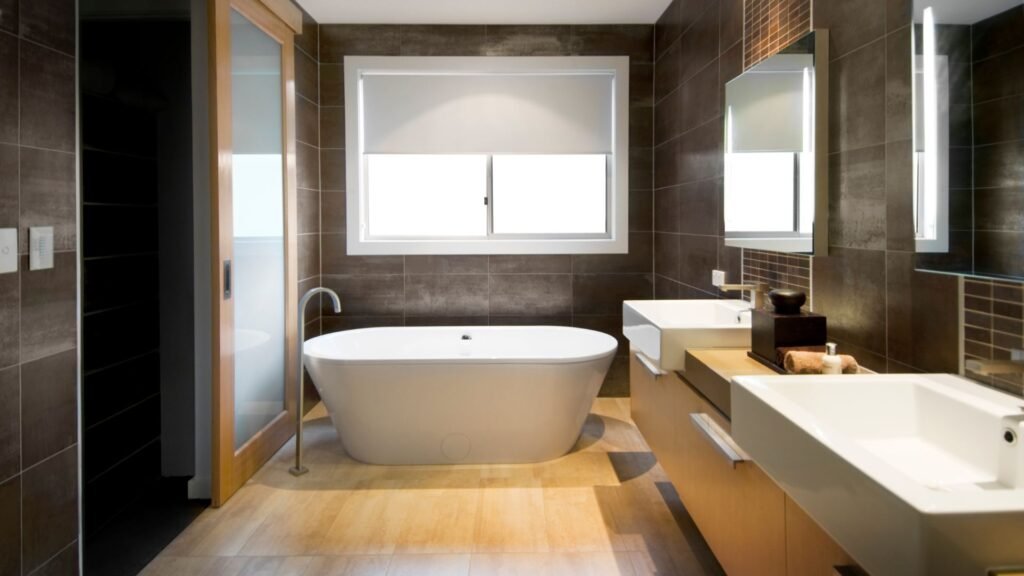
Cost Of Repairs In New Zealand
When your bathroom starts to smell every time it rains, fixing the issue might seem overwhelming, especially when you’re unsure about the cost. In New Zealand, the price of repairs can vary based on the type of work needed, the age of your plumbing, and where you live. Whether you’re in Auckland, Wellington, Christchurch, or a smaller town, having a rough estimate helps you plan better and avoid unnecessary delays.
Drain Inspection
Drain inspections are usually the first step. A licensed plumber may use a camera to check your pipes for blockages, cracks, or pooling water. On average, a basic drain inspection in New Zealand costs between $150 and $300. If a camera inspection is included, expect it to fall on the higher end of the range.
- Standard drain check: $150–$200
- Camera drain inspection: $250–$300
These inspections help pinpoint whether the smell is coming from buildup, a broken pipe, or poor drainage.
Vent Repair Or Upgrade
Faulty or blocked vent pipes are a major cause of bad smells during rainy weather. In some older NZ homes, venting systems may not meet modern standards. Repairing or replacing a vent pipe typically costs between $300 and $700, depending on the complexity and roof access.
- Minor vent repair: Around $300–$400
- Full vent replacement or rerouting: $600–$700+
Vent repairs often require climbing onto the roof and working with older piping systems, so costs may rise with additional labor or structural complications.
Plumber Call-Outs In Auckland, Wellington, And Christchurch
Call-out fees differ by city and plumber availability. Larger cities often have higher base fees, especially after hours or during weekends.
- Auckland: $90–$120 call-out fee, plus $90–$130/hour labor
- Wellington: $85–$110 call-out fee, plus $80–$120/hour labor
- Christchurch: $80–$100 call-out fee, plus $75–$115/hour labor
If your job takes longer than expected or needs parts ordered, expect higher costs. Always ask for a quote up front, especially for jobs tied to smell diagnostics or vent repairs.
DIY Vs. Professional Comparison
If you’re handy, you might be tempted to fix the issue yourself. For minor fixes like topping up water traps or applying silicone to a toilet base, DIY is fine, and affordable. Enzyme-based cleaners and home sealants usually cost under $30.
But for anything involving:
- Pipe replacements
- Vent work
- Persistent odors
- Leaks or gurgling sounds
Hiring a professional is the better and safer choice. DIY mistakes can make the problem worse or even violate building codes, which could cost more in the long run.
DIY Pros
- Low cost
- Good for simple maintenance
DIY Cons
- Doesn’t address hidden or structural problems
- Risk of misdiagnosis or code violations
Professional Pros
- Accurate diagnosis
- Long-term solutions
- Peace of mind
Professional Cons
- Higher upfront cost
Whether you go DIY or hire a plumber, the key is to act quickly. Bad smells often point to deeper issues in the plumbing system, and ignoring them can lead to bigger repairs later.
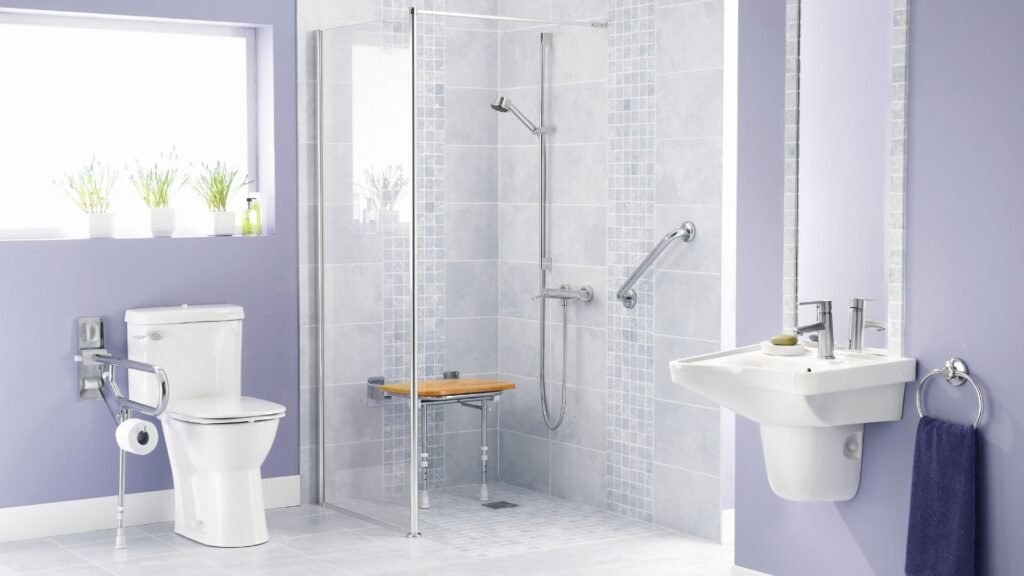
How To Prevent Future Smells In Wet Weather
Wet weather can trigger unexpected and unpleasant smells from your bathroom, especially if your home’s drainage system isn’t in top shape. The good news is, you can take a few simple steps to stop those odors before they start. Below are practical and proven ways to keep your bathroom fresh, even when the rain won’t stop.
Use Bathroom Fans Or Dehumidifiers During/After Rain
Humidity rises during and after rain, especially in closed spaces like bathrooms. When moisture hangs in the air, it can settle into walls, floors, and vents, creating the perfect conditions for mold, mildew, and odor buildup.
Turn on your bathroom fan during showers and after rainfall. If your home doesn’t have one, use a portable dehumidifier to reduce dampness. Keeping the air dry helps prevent musty smells and discourages bacteria from growing in hidden areas like grout and caulking.
Schedule Annual Drain Cleaning
Over time, drains collect soap scum, hair, grease, and other organic materials. These build-ups not only slow water flow but also create a breeding ground for odor-causing bacteria. If rain increases water pressure in your plumbing system, trapped gases can push through these blockages and release foul smells.
Booking a professional drain cleaning once a year can flush out this hidden gunk. It also allows plumbers to spot early signs of wear, cracks, or poor seals before they become bigger problems. This is especially helpful for older NZ homes with aging drainage infrastructure.
Keep External Drains And Gutters Clear
Clogged gutters and outside drains might not seem connected to your bathroom, but they are. When stormwater can’t drain properly, it can overwhelm the system and cause backups that affect your internal plumbing.
Regularly check and clean your home’s roof gutters, downpipes, and outdoor drain covers. In autumn, leaves and debris pile up fast. Removing them helps water flow freely, which reduces pressure in your plumbing and lowers the risk of sewer gas creeping into your bathroom.
Use Vinegar And Baking Soda Regularly
Vinegar and baking soda are two household staples that double as natural, non-toxic drain cleaners. When combined, they create a fizzy chemical reaction that helps loosen grime, dissolve small blockages, and neutralize odors.
Every few weeks, pour half a cup of baking soda down your bathroom drains, followed by one cup of white vinegar. Let the mixture sit for 10–15 minutes, then flush it with hot water. This routine not only keeps your pipes clear but also prevents bad smells from forming.
Taking these simple steps can make a big difference. By staying ahead of the issue, you can keep your bathroom smelling clean and your plumbing working smoothly, even on the rainiest New Zealand days.
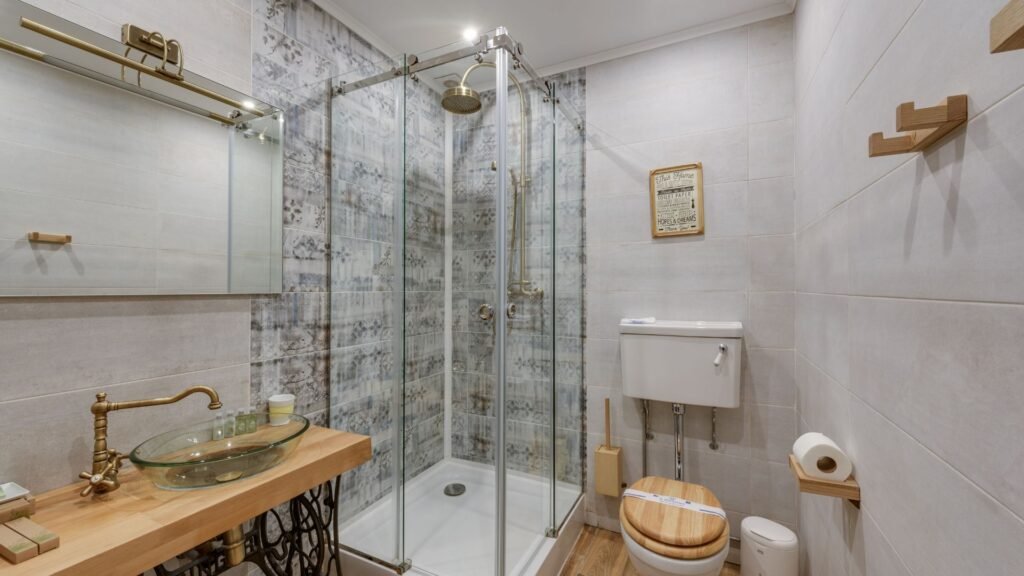
Real Stories From NZ Homeowners
Hearing from real people who’ve faced the same issue makes all the difference. Here are three genuine stories from New Zealand homeowners who dealt with bathroom smells during rain, and found smart, simple ways to fix them. Their experiences show just how common this problem is and offer reassurance that it can be solved without too much stress or expense.
John From Auckland: A Blocked Vent Pipe Surprise
John lives in a 1970s home in the North Shore. Every time it rained heavily, his bathroom gave off a strong sewage-like odor. At first, he assumed it was a dirty drain, so he poured in chemical cleaners and even tried using baking soda and vinegar. But nothing worked.
Eventually, he called in a plumber, who found that the vent pipe on the roof was partially blocked by leaves and debris. The blockage caused pressure to build up during storms, pushing bad smells back into the bathroom. After a quick clean and a new vent cap, the smell disappeared for good.
Melissa From Wellington: A Dry Shower Trap Fix
Melissa and her partner noticed a faint musty smell after every downpour. Their main bathroom was rarely used since it was in the guest wing of the house. After searching online, Melissa realized the smell could be coming from a dry shower trap.
She tested it by pouring a small amount of water into the unused shower. The next time it rained, there was no smell. She now makes it a habit to run water down that drain every few weeks, especially during the rainy season. It was a simple fix that cost nothing but made a big difference.
Tane From Christchurch: A Toilet Seal Leak
Tane bought a renovated home and noticed a horrible bathroom smell whenever it rained. It seemed strongest near the toilet. He checked the seal and noticed slight movement when pushing the toilet from the side.
A plumber confirmed the wax seal under the toilet had shifted. During rainstorms, pressure changes in the drainage system pushed gas out through the loose seal. Replacing the seal with a new one and applying fresh silicone around the base solved the issue completely.
These stories highlight how important it is to investigate the source of the smell rather than just masking it. Whether it’s a blocked vent, a dry trap, or a leaking toilet seal, identifying the root cause is key to keeping your bathroom fresh, even in the middle of a downpour.
Don’t let wet weather ruin your comfort. Explore our services and keep your bathroom fresh year-round.
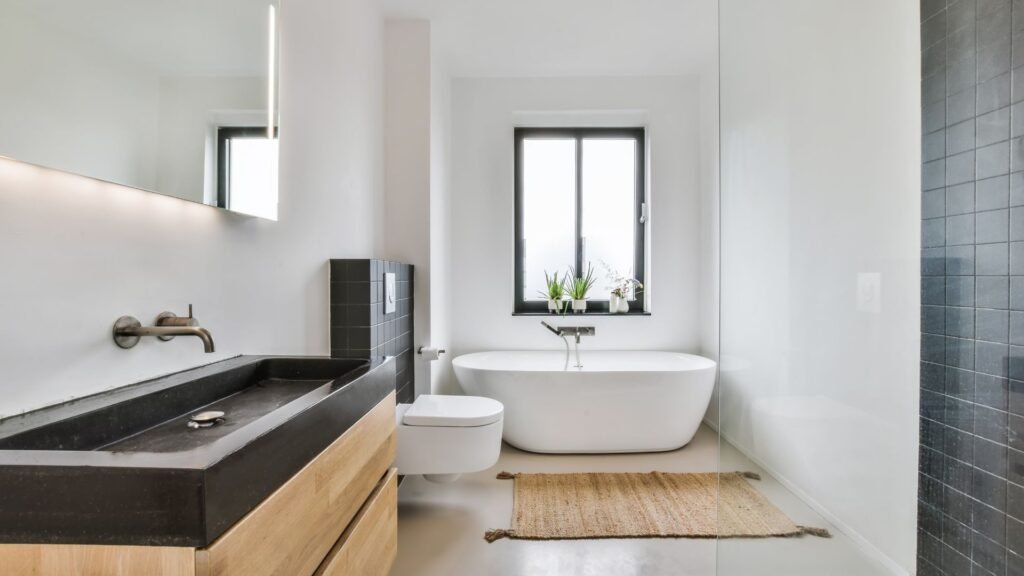
FAQs: About Bathroom Smells When It Rains In NZ
Why does my bathroom smell when it rains in New Zealand?
This usually happens due to pressure changes in the plumbing system, allowing sewer gases to escape through dry traps, faulty seals, or blocked vent pipes.
Is it normal for drains to smell during wet weather?
It’s common but not normal. If your drains smell, it usually indicates a problem with ventilation, water seals, or waste buildup that needs fixing.
Can heavy rain affect my home’s plumbing system?
Yes. In NZ, heavy rain can overload stormwater systems or force sewer gases back through bathroom drains, especially in older homes with outdated infrastructure.
What are dry P-traps and how do they cause odors?
A dry P-trap occurs when water evaporates from a drain that’s rarely used. Without water to block sewer gases, smells can rise back into the bathroom.
How can I tell if the smell is coming from the toilet or drain?
Smells from the toilet may indicate a broken wax ring seal, while odors from other drains often point to dry traps or clogged pipes. Sniff near each fixture to isolate the source.
Are bathroom smells after rain harmful to health?
Occasional mild odors are unpleasant but not usually dangerous. Prolonged exposure to sewer gas may cause headaches, dizziness, or nausea, so it’s best to resolve the issue quickly.
What can I do to get rid of the smell myself?
You can pour water down all drains, clean them with baking soda and vinegar, run bathroom fans, and ensure all plumbing seals are tight. These steps often resolve minor issues.
When should I call a plumber about this problem?
Call a licensed plumber if smells persist after cleaning, if you hear gurgling noises, or if multiple fixtures smell. These signs often indicate a more serious underlying issue.
How much does it cost to fix bathroom odors in NZ homes?
Costs vary. A basic drain cleaning might cost under $200, while vent repairs or seal replacements can range from $300 to $800 depending on the job and location.
Can this issue be prevented in the future?
Yes. Regularly use all drains, clean them monthly, keep vent pipes clear, and maintain bathroom ventilation. For older homes, consider upgrading plumbing components.
Conclusion
If your bathroom smells when it rains, you’re definitely not the only one, this issue is more common in New Zealand homes than most people realise. While the smell might seem like a mystery at first, it usually comes down to things like blocked vents, dry drain traps, or worn-out seals. The good news is that this problem is fixable, and in many cases, simple steps like pouring water into unused drains or sealing gaps can make a big difference. But don’t wait too long to act. Ignoring the smell can lead to bigger plumbing problems or even health concerns down the line. If you’ve tried a few basic fixes and the odor keeps coming back, it’s best to reach out to a licensed NZ plumber who can inspect your system and sort it out properly. Taking early action can save you time, money, and a whole lot of stress later.

